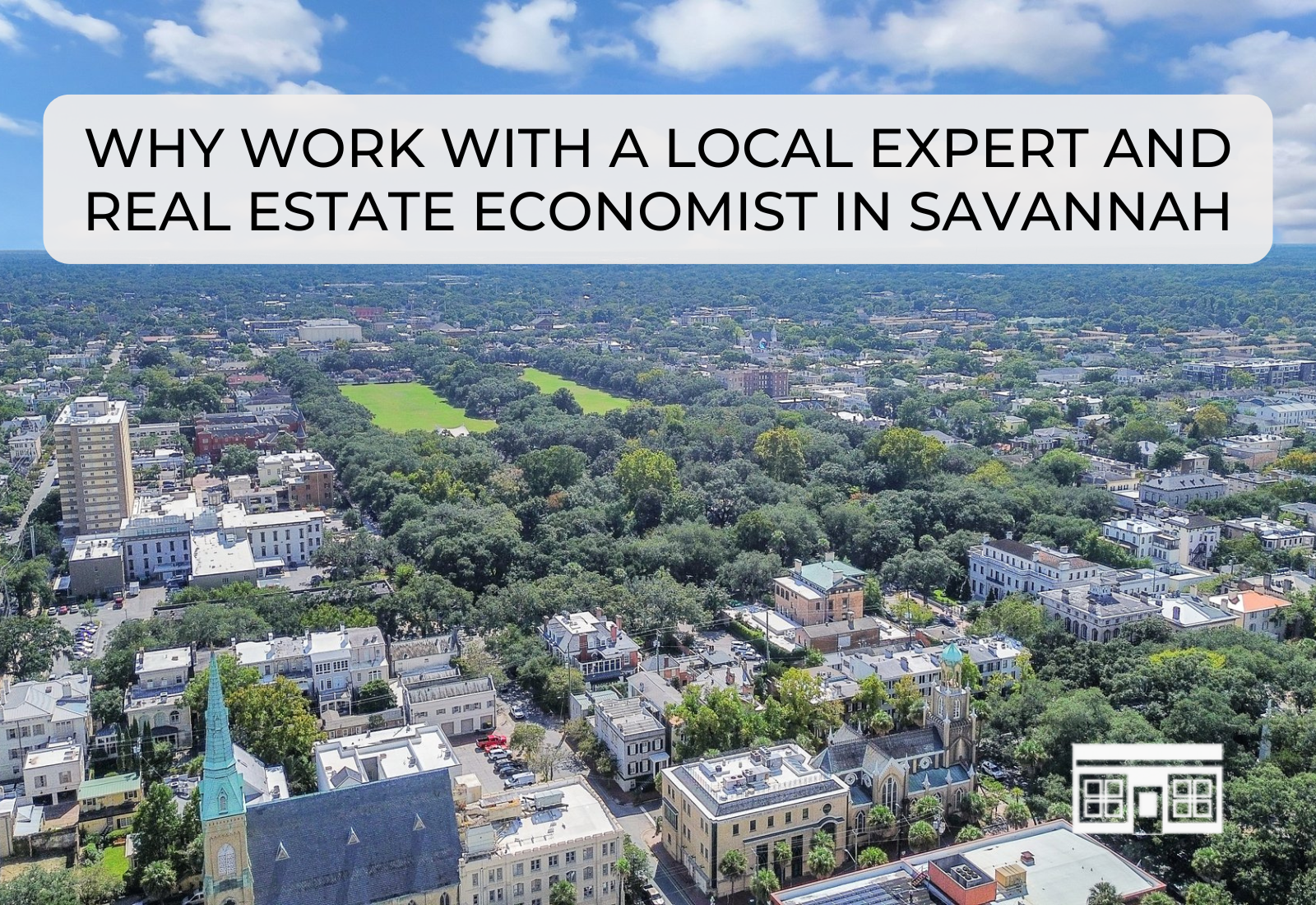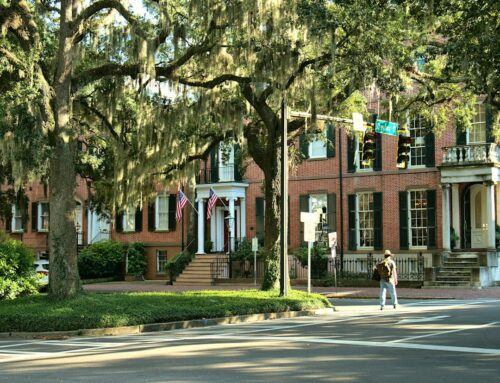Why Work with a Local Expert and Real Estate Economist in Savannah
In today’s real estate market, success comes from more than just listing a property or browsing homes online. The difference between a smooth, profitable experience and a stressful one often comes down to strategy. That is why working with a local expert and real estate economist in Savannah can be the smartest choice you make.
A real estate economist understands how markets behave. They look at inventory, buyer demand, interest rates, and pricing trends with a critical eye. When that knowledge is paired with deep local expertise, buyers and sellers gain a significant advantage. In Savannah and its surrounding communities, where each neighborhood has its own rhythm, this kind of insight is essential.
Let’s explore why this combination of data-driven economics and local expertise matters, and how it can make your real estate journey more successful.
What Does a Real Estate Economist Do?
A real estate economist is more than an agent who lists homes and hosts open houses. They bring analytical tools that go deeper into what drives value in the market.
-
Market forecasting: Identifying where home prices and demand are heading, not just where they are today.
-
Local economic insight: Studying Savannah’s job growth, population shifts, and new development patterns.
-
Neighborhood-level analysis: Looking beyond citywide averages to determine how specific subdivisions or communities are trending.
-
Pricing strategy: Using data to set competitive yet profitable prices that reflect true demand.
-
Risk management: Helping clients avoid overpaying in overheated pockets or underpricing in desirable areas.
This mix of economics and real estate creates a strategy that is not only reactive to current conditions but proactive about future trends.

Why Savannah Requires Local Insight
Savannah’s real estate market is unique. A few blocks can make the difference between a home that receives multiple offers and one that lingers for months. This is because neighborhoods vary widely in age, amenities, and demand.
-
Historic Savannah appeals to buyers seeking charm and walkability, but properties may require updates and higher maintenance.
-
Pooler offers newer construction, larger homes, and proximity to shopping, drawing families and commuters.
-
Richmond Hill is known for excellent schools and community living, attracting military families and professionals.
-
Savannah Quarters and Westbrook provide gated luxury and resort-style amenities that bring in local and out-of-state buyers alike.
A local expert understands these nuances and combines them with economic data to guide decisions. For example, a home in Westbrook might command higher value not only because of square footage but also because of its golf course views and limited inventory.
The Numbers Behind Savannah’s Market in 2025
To see why local expertise matters, let’s look at some current market data.
-
According to Redfin, Savannah’s median home price is about $340,000, up nearly five percent year over year. Homes spend an average of sixty-one days on the market.
-
Zillow reports Savannah’s average home value at $329,496, down about two and a half percent compared to last year.
-
The Federal Reserve Bank of St. Louis tracks active listings in Savannah’s metro area and reported more than 2,000 active listings as of July 2025.
-
Local sources note that new listings are rising, pendings are softening, and days on market are stretching—a sign that the market is cooling slightly while still maintaining steady demand in desirable areas.
These mixed signals highlight why a real estate economist is valuable. National headlines might suggest a booming market, while neighborhood-level analysis may reveal slower absorption rates or a need for strategic pricing.

What This Means for Buyers
For buyers in Savannah, Pooler, or Richmond Hill, market conditions can feel confusing. Some homes are selling quickly with multiple offers, while others sit for weeks.
A local expert with economic training helps buyers by:
-
Identifying true value: Sorting out overpriced listings from those that are worth a closer look.
-
Spotting growth areas: Highlighting communities where demand is rising and future appreciation looks strong.
-
Negotiating smarter: Using data about inventory and days on market to support a stronger negotiation position.
-
Avoiding emotional decisions: Helping buyers stay focused on the numbers as well as lifestyle needs.
This is especially important for relocation buyers, who may not know the difference between neighborhoods like Georgetown, Isle of Hope, or Wilmington Island. A data-backed guide ensures they make decisions confidently.
What This Means for Sellers
For sellers, working with a local expert and real estate economist can be the difference between a stale listing and a competitive sale.
-
Accurate pricing: A home priced using generic comps may sit too long. An economist understands how micro-market trends affect value.
-
Timing strategies: Knowing whether to list now or wait can mean thousands gained or lost.
-
Targeted marketing: Highlighting features that align with current buyer demand, whether it’s energy efficiency, outdoor living, or proximity to schools.
-
Faster sales: Data-driven pricing paired with strong marketing draws in serious buyers faster.
For example, if inventory is rising in Pooler, pricing aggressively may help secure offers quickly. In contrast, in Historic Savannah where inventory is tight, a premium price might still attract competitive bids.
Example Scenarios
-
Scenario 1: A family moving to Richmond Hill for schools needs guidance on which neighborhoods are likely to hold long-term value. A local expert uses school performance, commute times, and pricing data to direct them to the right area.
-
Scenario 2: A homeowner in Westbrook at Savannah Quarters wants to sell a luxury estate. A real estate economist evaluates demand for high-end properties, days on market, and seasonal buyer trends to price effectively.
-
Scenario 3: A first-time buyer in Pooler is unsure whether to stretch their budget. A data-driven agent helps them weigh the cost of ownership against projected appreciation in their target neighborhood.
How to Choose the Right Local Expert
If you’re considering buying or selling in Savannah, here’s what to look for in a professional.
-
Track record with results: Look for someone who publishes regular market updates and can share past success stories.
-
Deep local knowledge: They should understand how neighborhoods differ, not just at the zip code level but at the street level.
-
Data transparency: The right agent will show you the numbers behind their recommendations.
-
Strong network: Connections with lenders, builders, appraisers, and other agents provide access to opportunities and insights.
-
Personalized approach: Your situation is unique, and your agent should tailor strategies to your needs.
Savannah’s housing market is full of opportunities, but it is also layered with complexity. Prices move differently from one neighborhood to the next, and national headlines often fail to capture local realities.
By working with a local expert and real estate economist, you gain the confidence that your decisions are guided by both data and experience. Buyers avoid costly mistakes, sellers maximize their returns, and everyone moves forward with greater clarity.
When you are ready to buy or sell in Savannah, Pooler, Richmond Hill, or the surrounding coastal communities, trust a professional who can combine numbers with neighborhood knowledge. It is the smartest way to approach real estate in 2025 and beyond.









